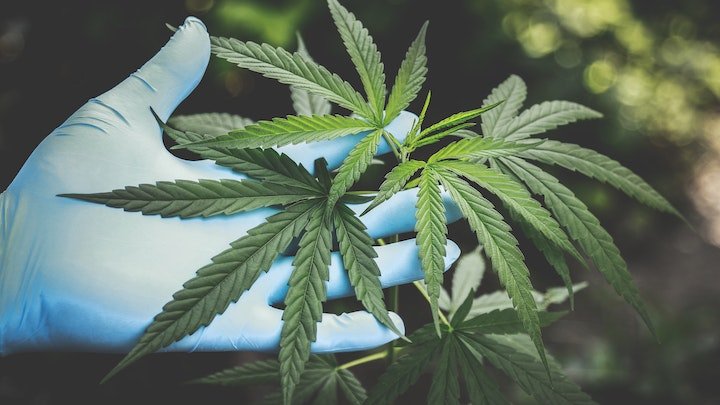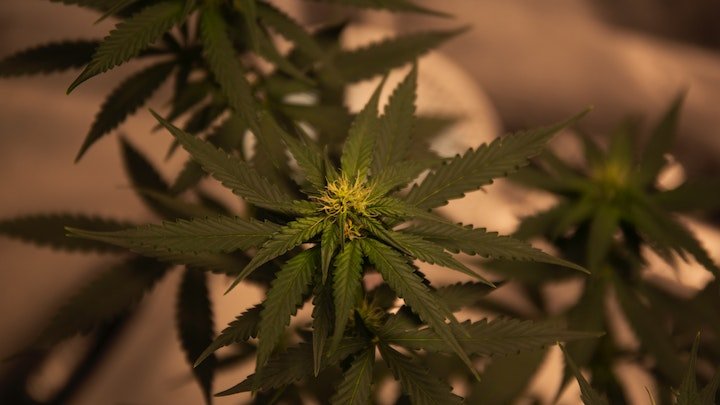Cannabis is a drug that goes by many names. Weed, Marijuana, Kush – it is known all over the world as a recreational substance, yet that doesn’t mean that there aren’t commonly asked questions surrounding its dangers and long-term effects.
Cannabis: everything you need to know

Below, we attempt to provide a varied discussion of cannabis to ensure you are more informed of the risks and dangers of consuming this drug:
What is Cannabis?
Cannabis is a plant that, when dried, can be used as a recreational drug. It is famous for its ability to put those who use it into a state of calm and relaxation, placing it at the centre of a debate as to whether it should be used medicinally. In the UK, it is an illegal substance.
What does it look like?
As a plant, Cannabis appears as a series of long, jagged leaves sprouting from the end of a green stem. However, when harvested Cannabis can take on a variety of different forms.
A few popular forms include:
- Buds – These are clumps of the substance, appearing almost fuzzy with small crystal-like structures along their exterior.
- Grounded – When crushed, the leaves can be broken down into very small pieces that are often stored in jars.
- Joint – Probably the most popular image of Cannabis, the drug is rolled into a strip of paper and prepared to look like a larger version of a normal cigarette.
- Blunt – Similar to a joint, a blunt takes the same form but involves the rolling up of Cannabis within tobacco leaves rather than paper.
- Oil – Usually stored in a small glass bottle, Cannabis oil appears as a green liquid, similar in colour to the original leaves.
How do people ingest it?
As can likely be deduced from Cannabis’s various forms, the drug can be ingested through multiple different methods. It can be smoked via a joint or blunt, brewed into tea in its leaf form, or baked into food when it has been grounded down.
What does it do in the short-term?
Cannabis effects are numerous. There will be natural variation between different individuals, with both positive and adverse effects being experienced, but some of the most common include:
- Happiness and high spirits
- Memory lapses
- Intense relaxation
- Distorted perception of time
- Sensory hallucinations
- Inability to move
- Poor problem-solving and judgement
- Delusions
- Paranoia and other psychotic symptoms
Cannabis and the brain – how do they interact?

Despite its fame throughout the world, not everyone knows how Cannabis produces its psychoactive effects. The relationship between our brain and the drug is very intricate, and a lot of it comes down to a compound known as THC.
When Cannabis is ingested, Tetrahydrocannabinol (THC) enters the bloodstream and is rapidly distributed throughout the body. The fastest way this happens is through smoking – where THC moves directly from the lungs to the blood – and can take longer when eaten [1].
Regardless of the ingestion method, THC will make its way to the brain. Once there, it begins interacting with cannabinoid receptors which are located all throughout the brain.
These receptors become activated in their millions, producing a range of sensations.
In addition to this, a rush of dopamine fills the brain, sparking feelings of pleasure that means individuals enjoy the ‘high’ they are experiencing. THC is responsible for the beneficial effects of Cannabis, such as pain and depression relief.
Using Cannabis for years – what are the dangers?

Despite its reputation as a substance that provides pleasure and feelings of relaxation, consistent Cannabis use can have adverse long-term effects. Using it regularly for years can lead to complications, and being aware of these is incredibly important.
Reduced brain functionality
There has been a variety of research which indicates that long-term Cannabis can reshape the brain’s neurological makeup, contributing to changes in an individual’s cognitive functions.
For example, many studies have detected a correlation between sustained Cannabis use and shrinkages in brain areas responsible for faculties such as memory, learning, and impulse management [2].
Many factors have been detected to have an influence on how the drug affects the brain. The age at which an individual begins using Cannabis, for example, can have an impact, with those who start younger being at greater risk.
Breathing problems
If Cannabis is being smoked on a regular basis, the lungs are at huge risk of being damaged.
Just as with smoking cigarettes, the respiratory tract can begin to suffer after years of smoking Cannabis, triggering respiratory complications in later life.
But the damage to the throat and lungs can have additional impacts as well. As well as breathing issues, individuals can have a persistent cough, chronic bronchitis, and a higher chance of getting lung and throat cancer.
Complications with pregnancy
Using recreational substances while pregnant is widely known to have potential consequences, and the same goes for Cannabis.
As well as influencing the brain of pregnant women, Cannabis can impact unborn children’s brain development.
They can experience problems with memory and problem-solving, both if the mother uses Cannabis while pregnant and if the substance passes through breastmilk.
The decline in mental health
Of course, it is incredibly difficult to judge the relationship between recreational substances like Cannabis and mental health disorders. A large reason for this is that those who use them are more likely to do so to soothe psychological difficulties in the first place.
With this in mind, findings have pointed to a relationship between prolonged Cannabis use and the development of psychiatric disorders.
Namely, regular Cannabis users are more likely to develop anxiety disorder, depression and substance use disorders.
In addition, a recent study found that daily Cannabis users are almost five times more likely to develop psychosis than those who have never used it [3].
Is it possible to become addicted to Cannabis?

One of the most common long-term effects of using any recreational substance for a prolonged period of time is addiction. But can you become addicted to Cannabis?
Although fiercely denied by many, it is possible to develop an addiction to Cannabis. Not in the same physical way that an individual can become dependent on alcohol or heroin, but frequent usage can cause them to believe the drug is necessary for their daily life.
Psychological dependence on Cannabis
When individuals regularly experience the pleasurable effects of taking Cannabis, their brain begins to develop an association. It draws a connection to the drug and the rush of dopamine it experiences, and this association deepens with more and more usage.
Over time, this continues so long until the brain feels blindsided by a lack of Cannabis. It cannot possibly make up for the high dopamine levels it has become accustomed to, and its response is to look towards what it has started to believe necessary to feel good: Cannabis.
In terms of how an individual feels, they become intensely upset, anxious, or distressed when they don’t have access to Cannabis. They want it to make them feel calm again and not feel capable of working or socialising without it.
Such withdrawal symptoms trigger addictive behaviours, with individuals becoming increasingly heavy users of Cannabis regardless of any adverse effects they might experience.
The issue of tolerance
But Cannabis addiction is not without its physiological aspects. Although it doesn’t have the same kind of physical impact as heroin or alcohol, tolerance still develops.
As individuals get used to it, more is needed in order for them to consistently get the same effects.
As a result of this, the rate and quantity of Cannabis intake increase over time. This pushes individuals further and further into their psychological dependency as it means they require more of the drug to banish their distress and anxiety.
Treating a psychological reliance on Cannabis

Untangling a psychological dependence on Cannabis requires a patient and deliberate therapeutic approach. Alongside a reduction in consumption, Cannabis rehab entails individuals working with specialists to tackle their unhealthy perceptions of the drug.
A therapist’s role in this process is to get to the roots of why an individual takes Cannabis as much as they do. If they experience a mental health condition (referred to as dual diagnosis), have familial conflicts, or have a demanding lifestyle, it must be identified.
With such triggers put under the spotlight, a therapist and individual must then discuss how such problems can be worked through without relying on Cannabis. Coping mechanisms are practised, and an individual’s attitudes to triggers are re-evaluated.
There is no single way that Cannabis therapy can be conducted. As with all addiction therapy, the process can adopt whatever format is most beneficial for the individual.
Popular examples include:
- Cognitive Behavioural therapy (CBT) – Identifying thought processes and perceptions that negatively influence behaviour. It also promotes more stable cognitive functions and rational thinking.
- Family therapy – Settling familial disputes and producing a more supportive atmosphere within the home.
- Group therapy – Speaking with other recovering individuals to share stories, offer advice, and contribute to an atmosphere of mutual respect and support.
- Holistic therapy – Using activities such as art, animal care, music, and exercise to promote healthy living and a clearer worldview
Struggling to quit Cannabis use? – How OK Rehab can help
Upon learning some of the potential dangers of using Cannabis on a regular basis, it is normal to want support. If you’re unsure of how to get help, OK Rehab are here to help.
Our team are on hand to provide you with the information and guidance you need to properly understand your Cannabis use.
Whether you want to know your options for effective treatment, or simply want answers to your most burning questions, we are here.
Give us a call on 0800 326 5559!
References
[1] https://nida.nih.gov/publications/drugfacts/cannabis-marijuana





